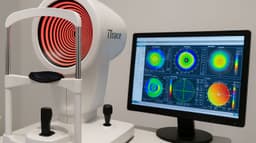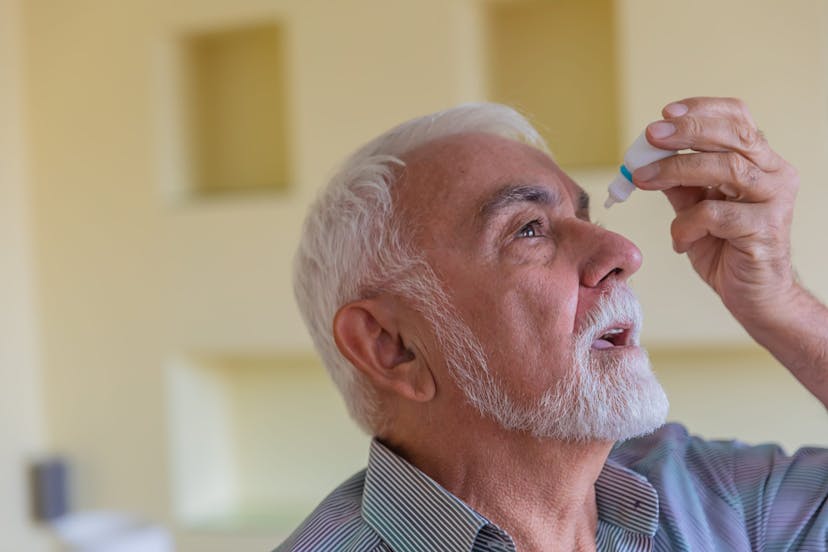
The Cataract Operation Process: Post Surgery And Care Guide
Envision a world where colours become dull and unsettling, where familiar things become blurry and difficult to distinguish, and where reading pages prove a daunting chore. Millions of individuals developing cataracts must live with this reality. To understand what is a cataract, it is a common condition that coats the eye's lenses and reduces quality of life whilst reducing vision.
Free Cataract Surgery Preparation & Post-Surgery Care Guide - Download Here
But fear not — cataract surgery is a remarkable treatment that can restore clarity and revive the world's beauty. We will reveal the mechanisms behind a cataract operation in this fascinating voyage into the world of medical miracles, providing a look into the transforming potential it has for individuals seeking to reclaim their vision and recapture the wonder of life.
How Is Cataract Surgery Performed Step By Step?
Step 1: Anesthesia and incision - the curtain rises
When looking at what happens in a cataract operation, the surgeon starts the procedure with the help of cutting-edge technology and accurate equipment. To ensure your comfort throughout the cataract operation, your eye is carefully numbed.
A small incision is made within the outer layer of the eye in order to gain access to the clouded lens, which is the underlying cause of your visual problems. Typically, the opening tends to be small and requires no stitching.
Step 2: Removing The Cloudy Lens - Through The Looking Glass
Now comes the moment we have all been waiting for, an escape from hazy vision through the cataract removal process. A (phacoemulsification) probe, a high-tech apparatus, is introduced into the eye. This instrument of contemporary medicine disintegrates the clouded lens into tiny fragments using ultrasonic vibrations. In this intriguing surgery, fragments are delicately drawn away through suction to make room for the following step.

Step 3: Implanting An Artificial Lens - The Rise Of The New Star
The clouded lens has now been removed and hence comes in the entrance of your brand new lens - the artificial intraocular lens. It is expertly placed in the same spot where the natural lens formerly stood.
The IOL often consists of a transparent, flexible material that is intended to correct your vision after the cataract removal surgery. The IOL is permanent and thus you will not be able to sense it in your eye. A smooth shift, as if nature itself has given you a clean glass through which to view the world.
Step 4: Closing The Incision - A Bright New Dawn
Following the placement of the IOL, the surgeon will confirm that it has been correctly aligned and secure. The incision formed at the start of the cataract procedure normally heals on its own and does not require sutures. It will restore on its own over time.
The cataract procedure comes to a close as the finishing touches are applied. You might feel a range of feelings, including anticipation, enthusiasm, and possibly a little nervousness. However, rest assured that cataract surgery yields nothing less than remarkable outcomes.
Your eyesight will gradually become clearer over the coming days and weeks, the colours will come back to life, and everything will start to come into focus. A new dawn is waiting for you when you set aside the cloudy lens. After your surgery, it will be important to know the do’s and don’ts when it comes to cataract surgery, so be sure to understand the aftercare process.
Individualised cataract removal process It's crucial to remember that cataract surgery is a highly individualised process, with specifics varying based on the circumstances and the surgeon's choices. The duration of a cataract surgery will also depend on a range of factors as well, which you can discuss prior to surgery.
Cataract Operation Process
| Stage | Time Frame | Healing Process |
|---|---|---|
| Pre-Operative Assessment | Weeks to Days Before Surgery | Evaluation of eye health, measurements for intraocular lens, and discussion of surgical plan. |
| Day of Surgery | Approximately 2-3 Hours |
|
| Immediate Post-Operative Period | On the Day of Surgery |
|
| First Few Days After Surgery | First Few Days Post-Op | Mild Discomfort, Gritty Sensation, Blurred Vision |
| Start of Eye Drop Regimen | Beginning Immediately After Surgery | Antibiotics and Anti-Inflammatory Drops: As prescribed by the surgeon |
| Follow-Up Appointments | Several Within First Few Weeks | Monitoring of Healing and Vision Progress |
| Vision Improvement | Within First Few Days Post-Op | Gradual Improvement in Vision, Colors may Appear Brighter |
| Activity Restrictions | First Few Weeks Post-Op | Avoid Strenuous Activities, Heavy Lifting, and Exposure to Dust or Contaminants |
Your recovery period should be around a few weeks. Please read our guide on what to expect after cataract surgery for more information
At My-iClinic, our experienced ophthalmologists will explain and guide you through all the stages of the cataract removal process thoroughly, and answer any queries you may have. Cataract surgery has helped millions of individuals across the world regain clear vision, and as technology and surgical procedures progress, the operation remains very successful and safe.
Cataract removal surgery is an inspiring journey of ingenuity and expertise that highlights the glories of contemporary medicine. It is a life-changing treatment that may restore clarity to a world formerly obscured by cataracts. Individuals reclaim their wonderful gift of seeing clearly with each successful operation, allowing them to fully experience the splendour and radiance of the world around them.
Cataract Surgery From Your London Surgeons
If you find yourself in the thick of a cataract cloud, know that cataract surgery could result in an exceptional new chapter when the magic of sight is restored and the curtain rises on a life full of clarity and bewilderment.
If you have any questions regarding cataract surgery or would like to book an appointment, please get in touch with our specialists on 0208 445 8877.
Find out more by Speaking to our team









